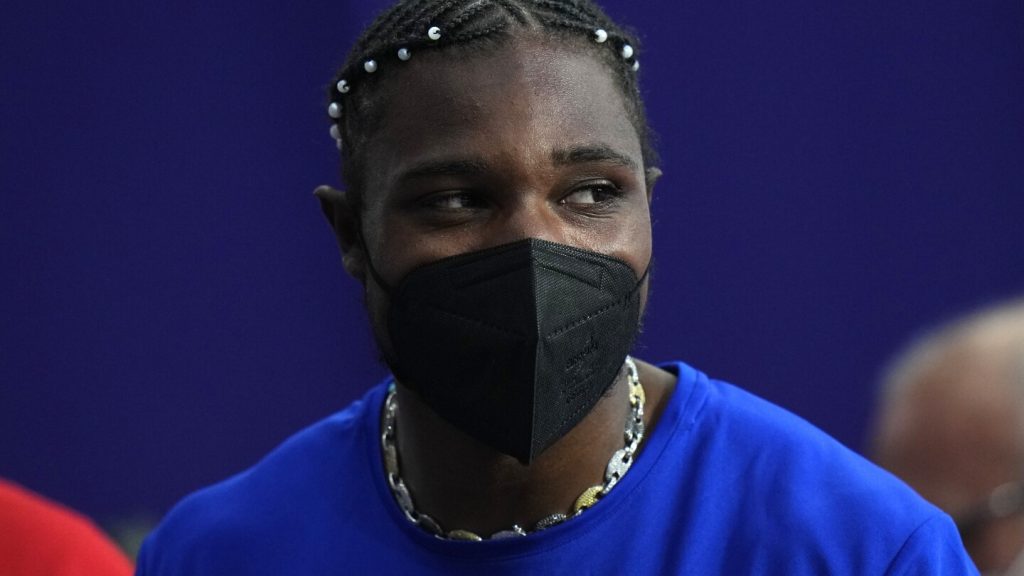The head of the U.S. Olympic and Paralympic Committee expressed full support for Noah Lyles’ decision to compete in the 200 meters at the Paris Olympics despite testing positive for COVID-19. Lyles did not disclose his positive test until after winning the bronze, ending his three-year winning streak. USOPC CEO Sarah Hirshland stated that Lyles had the final say on whether to race, and medical staff closely monitored him according to CDC guidelines and past experience in treating athletes with the virus.
Lyles mentioned that he had quarantined and rested before the event, and USATF confirmed that he underwent a thorough medical evaluation and opted to compete. Despite finishing third, Lyles collapsed and showed signs of exhaustion, needing medical attention and leaving in a wheelchair. Hirshland praised Lyles for his determination to compete despite not being at his best health, noting the respect he showed for his own health and others’ safety by wearing a mask and following protocols.
Lyles’ last loss in the 200 meters was at the Tokyo Olympics, where he also struggled with mental health challenges during the pandemic. Unlike Tokyo, Paris did not have strict COVID-19 protocols, with President of the International Olympic Committee Thomas Bach mentioning that COVID is now treated similarly to the flu. Lyles woke up with symptoms and was isolated near the Olympic village, informing only a few people about his illness to avoid giving competitors an advantage.
Lyles’ treatment protocols primarily focused on isolation, adjustments to nutrition, and consultation on medication choices. Despite trying to minimize contact with others, he was seen embracing gold medalist Letsile Tebogo after the race. Tebogo was unaware of Lyles’ COVID status and was not concerned about competing against him, as track and field is not a contact sport. Lyles stated he did not expect to compete further at the Games, indicating the toll his illness took on his performance and well-being.
The situation with Lyles raises questions about the evolving understanding of COVID-19 and its impact on athletes at major sporting events. USOPC and USATF’s handling of Lyles’ case emphasized his agency in deciding whether to compete and the importance of following medical guidance. As the pandemic continues to affect global events, such instances underscore the complexities of balancing athletic competition with health and safety considerations.
Overall, Lyles’ performance in the face of adversity highlights the resilience and determination of athletes in challenging circumstances. While his decision to compete while ill may spark debate, the support he received from his team and the respect shown for his health and that of others demonstrate a balancing act between competitive spirit and personal well-being in the current climate. The evolving nature of COVID-19 protocols and athletes’ experiences further underscore the need for ongoing adaptation and understanding in sports events.


